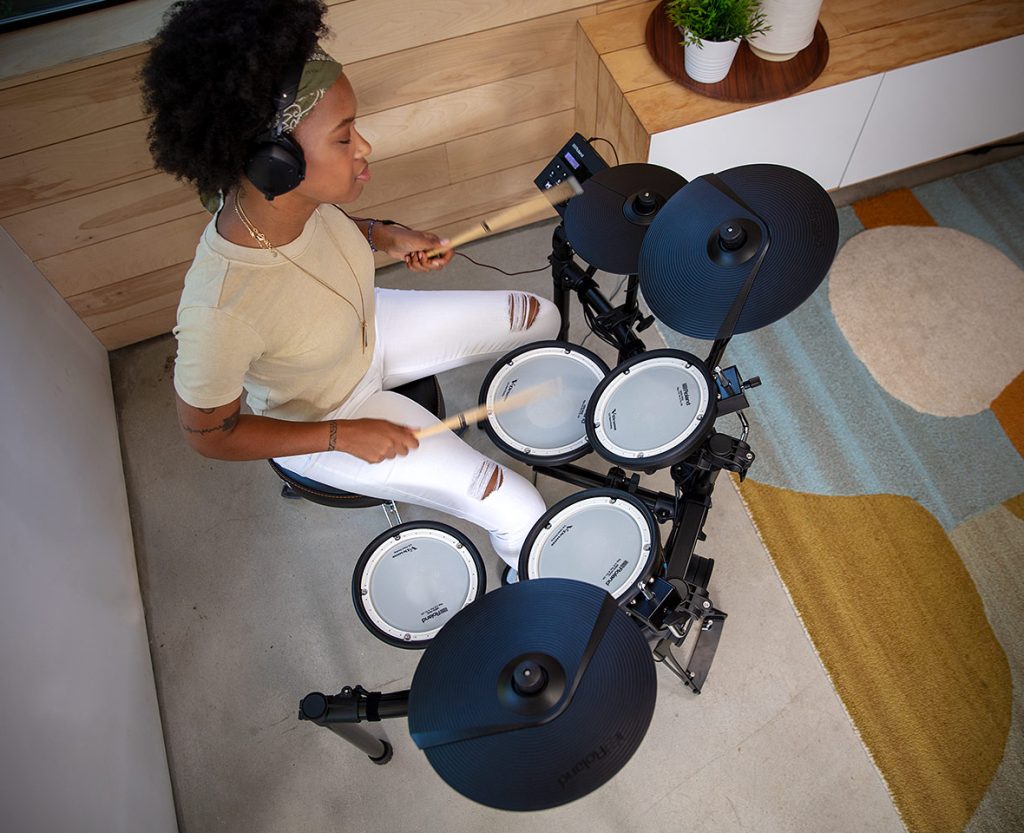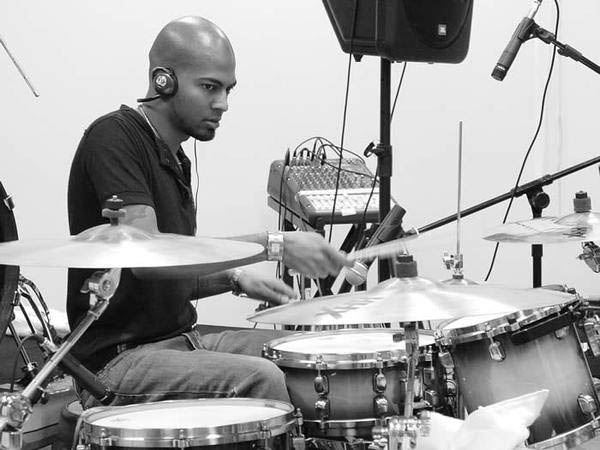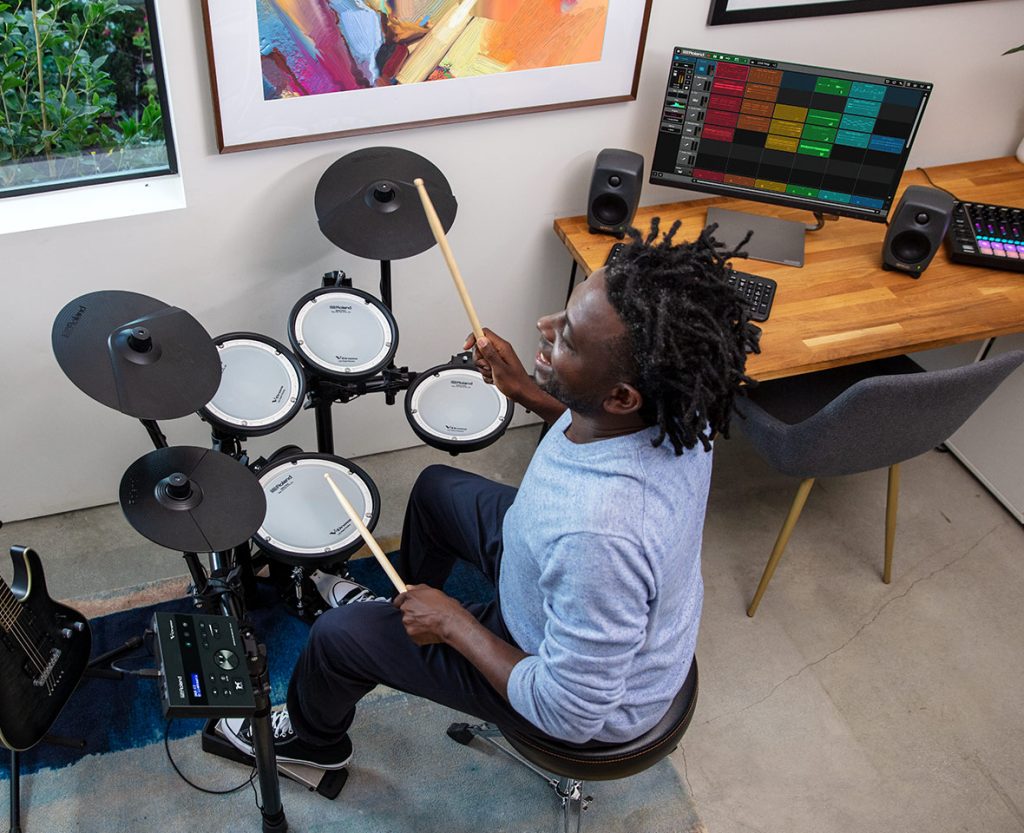Article written by Magesh for Roland Australia
Whether you have been playing an instrument for a few months or decades you will eventually get to a point where you become bored of what you are playing. Or you will tend to play the same patterns, beats, or scales. The good news is this happens to everyone!
Read below for how to improve your creativity on your instrument.
Getting bored of your playing comes down to one thing. A lack of creativity.
Firstly, Let’s have a look at things that are related to being creative. Then let’s look at some useful steps you can take to improve your creativity on your instrument.
Creativity is such a hard thing to nail down. It usually comes to you at inconvenient times like when you are taking a shower or like me when you are cooking a delicious spaghetti bolognese! It is important to record your ideas as they happen or you will surely forget them. Don’t get bogged down in transcribing 32 bars of music as you start dinner, just sing your ideas into the recorder on your phone.
There is a great story about how Paul McCartney dreamt the melody to the famous Beatles song’ Yesterday’. He wrote down the melody as soon as he woke up. If he decided to do it after he brushed his teeth he may have forgotten it.
Here are 3 simple steps you can take to increase your creativity on your instrument.
1. Find Your Comfort Zone
Your comfort zone needs to get uncomfortable for creativity to flourish.
The reason so many musicians get bored of their playing is they are unable to play outside of their comfort zone.
If you play jazz guitar it may seem like a strange idea to use a distortion pedal. Although using a distortion pedal may make you nervous at first it may help you discover new chords, sounds, and tones that you wouldn’t have uncovered without it.
I once had a student come to me and tell me he is a ‘heavy metal’ drummer. I asked him what that meant. He said he loves playing music that is extremely loud and fast. I played him some of Miles Davis’s music with legendary drummer Tony Williams.
Although this music wasn’t exactly loud it was tremendously fast. The student asked me if I could show him some of these jazz rhythms. I even taught him to use wire brushes.
Being open-minded to learn only enhanced this student’s creativity.

2. Be open-minded to learn new styles.
I think it was the great Duke Ellington who said ‘There are 2 types of music…..good and bad.’
We all gravitate towards different styles of music. Although as a session musician I have been called to play funk, rock, jazz, classical, pop, and blues music, funk music floats my boat.
That being said I was always curious about what rhythms were being played in different styles. I’m not saying you should feel the need to master every style but at least be open-minded to listen to something new before writing it off as uncool.
I wouldn’t say I’m a fan of country and western music but learning how to play a ‘Texas shuffle helped me understand how to groove with both hands simultaneously. This concept helped me play funk, pop, and rock.

3. Set up your instrument in an unusual way.
The great thing about being a drummer is you get to decide how big or small your drum kit is.
It could be a 4 piece kit or a 44 piece kit. The number of drums and cymbals will affect what rhythms you play.
As a guitar player, you can tune your guitar in multiple ways. Iconic folk singer Joni Mitchell was famous for using ‘open tuning’ on a guitar. This system helped her create some amazing songs.
In the early 2000s, a lot of heavy metal bands started tuning their guitars incredibly low to get a new sound. This simultaneously helped them connect with their teenage audience and annoy those same teenagers’ parents.
The point is there are so many ways to alter sounds today. Whether through a flanger pedal, playing a song using an organ sound opposed to a grand piano sound, or playing hip hop beats on congas instead of the drumkit. Experimenting with sounds on your instrument is an excellent way to improve your creativity.
Final Thoughts
Whether your goal as a musician is to play songs by your favorite bands or to be a future rock star, creativity is a big part of playing music. These tips are just the TIP of the iceberg (pun intended!) but they will get you on your way to improving your creativity on whatever instrument you play.
About the Author
Magesh has been a music teacher for 23 years. He has also worked as a session musician for some of the world’s biggest pop stars, including Lionel Richie, Ricky Martin, Rhianna, Nelly Furtado, Chris Brown, Kimbra and Vernon Reid (Living Colour). Magesh was ranked one of the ‘Top 20 Millennium players’ by ‘Drumscene magazine and appeared in ‘Modern Drummer’ (U.S.A), Rhythm (U.K), Percussion (Italy), and ‘Newsbeat (Canada) magazines.
Magesh currently teaches students all over the world.
https://www.mageshdrumteacher.co.uk/





